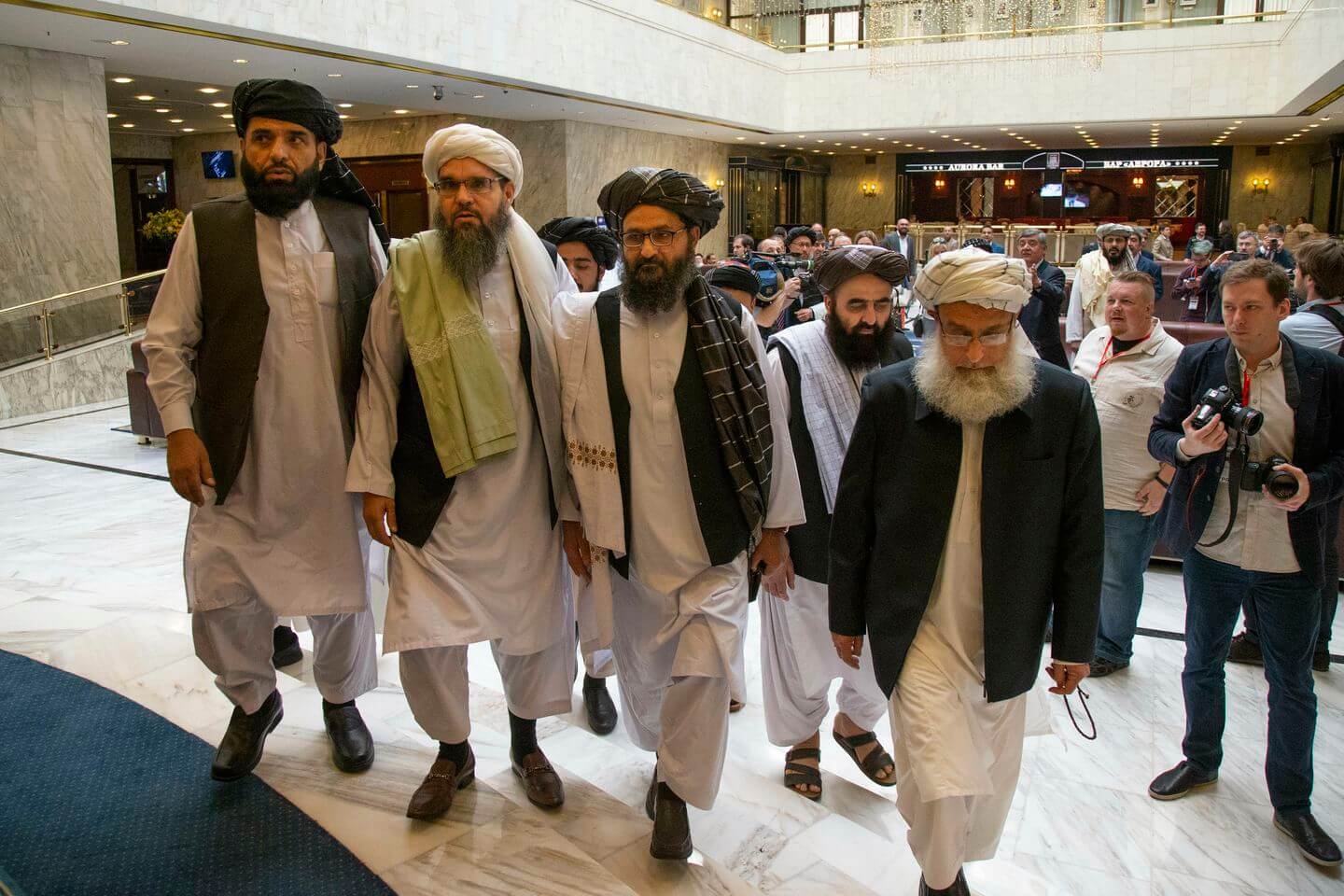The Taliban issued a statement denying claims of its plans to increase its involvement in terrorist activities in Kashmir. Social media reports claimed that the Taliban’s spokesperson, Zabihullah Mujahid, said that it is impossible to maintain friendly relations with India until the Kashmir dispute is resolved. The statement also allegedly said that after “capturing” power in Kabul, they would “capture Kashmir from infidels too”.
In response, Suhail Shaheen, the spokesperson for the Islamic Emirate of Afghanistan, the Taliban’s political wing, tweeted, “The statement published in the media about Taliban joining Jihad in Kashmir is wrong…. The policy of the Islamic Emirate is clear that it does not interfere in the internal affairs of other countries.”
These statements come amidst uncertainty surrounding the peace deal that was signed by the US and Taliban in February in an attempt to end the 19-year long war in Afghanistan. The deal has thus far yielded no tangible results, with the Afghan government and the Taliban disagreeing on the terms of the release of Taliban prisoners. The region is also witnessing continued violence despite ongoing talks of peacebuilding.
India and Pakistan are both stakeholders in the conflict in Afghanistan. Following the US-led peace talks, Pakistan hoped for a bigger role for groups that it has backed for decades, including the Taliban. India, on the other hand, supported President Ashraf Ghani’s government.
India and the Afghani government, led by Ashraf Ghani, have shown signs of cooperation to further the peacebuilding process in the region. On Monday, India’s Minister of External Affairs, S. Jaishankar, and Afghanistan’s Minister of Foreign Affairs, Haneef Atmar, held a video conference, during which both parties spoke on issues such as economic and security cooperation and the Afghan peace process.
Additionally, on Sunday, India applauded and supported the conclusion of the power-sharing deal between Afghan President Ashraf Ghani and his rival Abdullah Abdullah. Gran Hewad, a spokesperson for the MoFA, said, “India is one of the biggest donor countries and has helped Afghanistan in development and reconstruction areas, we appreciate their cooperation. We expect India and other neighbouring countries to play a significant role in the Afghan peace process.”
However, despite Suhail Shaheen’s comments, the Taliban and India have never shared an amicable relationship as the former is considered by India to be a Pakistan-sponsored organization. In fact, India supported the Northern Alliance to help maintain its military presence against the Taliban. The close links between the Taliban and Pakistan’s Inter-Services Intelligence (ISI) also caused a deterioration in the relations between the two, with Pakistan using Kabul to train terrorists to fight in Kashmir.
However, the Taliban’s recent approach to the Kashmir issue shows a shift in its stance on the conflict. While the Taliban expressed “deep sadness” over India’s decision to revoke Kashmir’s special status, it urged India and Pakistan to “use rational pathways” to resolve the dispute. Attempting to adopt a neutral position on the issue, Zabihullah Mujahid said, “Linking the issue of Kashmir with Afghanistan by some parties will not aid in improving the crisis at hand because the issue of Afghanistan is not related nor should Afghanistan be turned into the theatre of competition between the countries.”
The recent shift in the Taliban’s stance on the Kashmir issue indicates its desire to adopt a balanced approach to the region. The statement can also be seen as an attempt by the Taliban to change its image from that of a pawn of Pakistan. If this is the case, India must rethink its past policy of refusing to negotiate with the Taliban and must recognize the group as an essential stakeholder in the politics of South Asia as a whole.
However, any friendly relations with the Taliban must be approached with caution. As the Shura, the Afghan Taliban’s top decision-making body, and the closely-linked Haqqani network are both based in Pakistan, the group is likely to change its stance on the issue. Further, the group is not monolithic, with some factions closely linked with the Pakistan state and others adopting an independent line.
Image Source: The Boston Globe
Taliban Refutes Meddling Allegations, Calls Kashmir India's Internal Affairs
May 19, 2020

